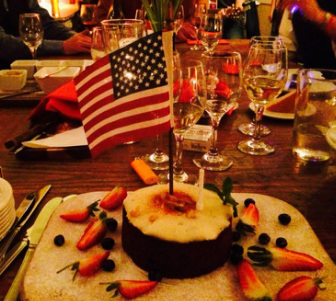As regular readers will know, my 20th century music vault is primarily American, with embarrassing quantities of Dylan, the Band, the Grateful Dead, the Airplane, Miles Davis, John Coltrane as well as hours of old blues, folkand jazz. My book shelves feature swathes of (randomly, as they spring to mind) Norman Mailer, Philip Roth, John Updike, Don DeLillo, Paul Auster, Hemingway, Hammett, O’Neill, Lowell, Berryman, Hunter S Thompson and Saul Bellow. I am obsessed by baseball in general and the Red Sox in particular. I count Boston as one of my favourite cities in the world, and am proud to number many Americans amongst my closest friends.
But any European of a certain age will struggle to resolve the ambivalence one feels about the US.
We grew up under the shadow of the Cuban crisis and the struggle for black emancipation. We moved on to the Vietnam war, what the Vietnamese call the American War. We watched fascinated as the Watergate scandal unfolded. We were horrified by the assassinations of Martin Luther King, and John and Robert Kennedy.
For us, at that time, this was America. And these were American events.
But were they?
As I learned on my first visit many years ago, the United States is not in any sense united. It is not a single, monolithic force but, rather, a series of parochial regions which are as different from each other as … well, Europe and America.
And for every event there was an opposite; for every thesis an antithesis. For every racist in the south, there was an idealist struggling to change structures and attitudes. The Vietnam war created the anti-war movement and the Weather Underground. Watergate gave new life to a free press and investigative journalism.
The American Dream, "that dream of a land in which life should be better and richer and fuller for every man, with opportunity for each according to his ability or achievement", still exists and is still dreamt by millions of Americans.
But America has the highest incarceration rate and the largest prison population in the world. It has the highest obesity rates. It spends some 280 billion dollars on the prescription drugs that kill more people than cocaine and heroin: one in five Americans are taking at least five prescription drugs; one in 6 are on food stamps. One in three children in the US live in homes without a father. The US national debt is $17 trillion. America has more lawyers more capita than any country in the world.
It is still possible to live that dream but it seems that the majority of Americans live a nightmare.
We don’t see this, of course. When I sat in Wilde’s last evening to celebrate the birthday of Michelle, from America, listening to American music played by Clayton Denwood, from America, we were celebrating what unites us rather than what divides.
And when I land at Logan Airport in three weeks, I will feel instantly at home. Because we in the UK and Europe cannot feel superior. We have the same problems but, as in so many things, America does problems on a larger scale, with a greater intensity and a higher profile.
Here’s to that devalued phrase but not, I hope, devalued concept: our special relationship. This land is our land.
Today from the everysmith vault: David Bromberg, Try Me One More Time.






 RSS Feed
RSS Feed